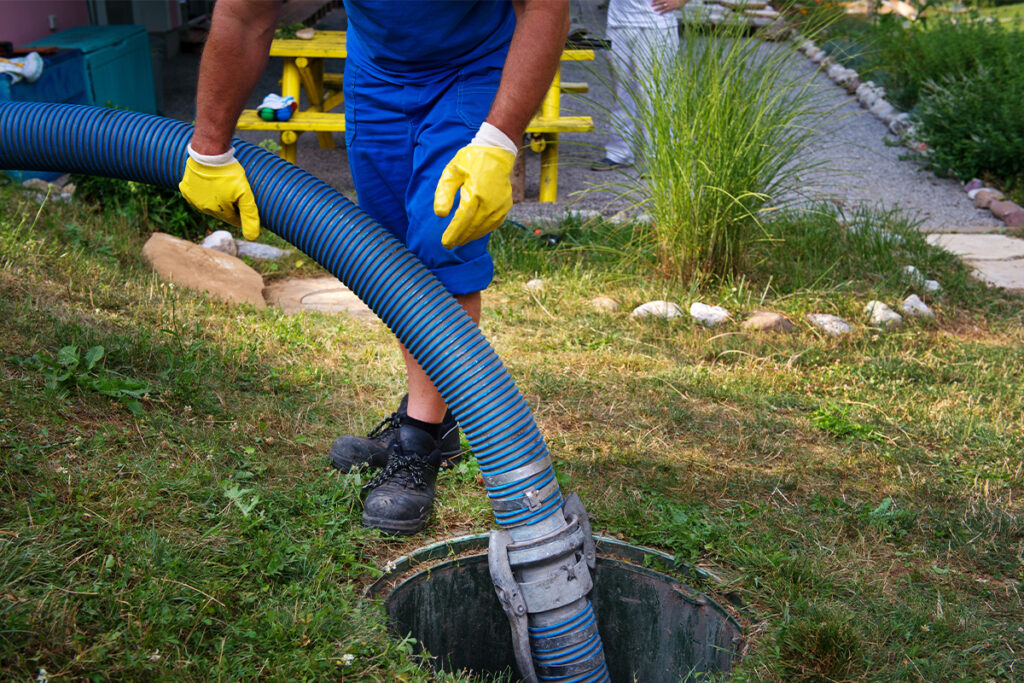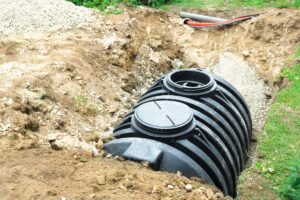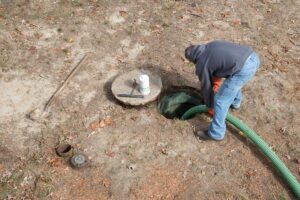Septic systems are used widely worldwide because they offer a straightforward way to provide on-site sewage treatment. But just like other wastewater treatment solutions, even septic systems require routine upkeep and maintenance to function smoothly.
Although the normal lifespan of septic systems is between 20-30 years, neglecting routine maintenance and pumping on your part could result in early deterioration or failure of your septic and drain field system and lead to costly repair or replacement.
Luckily, in this blog post, we’ll address different measures one can adopt to keep their septic system running steadily.
How to Care for Your Septic System?
- Inspect Frequently
A septic service professional like Best Septic Tank Pumping should inspect the average household(and commercial) septic system at least every three to five years.
Leading septic tank companies in Eugene reveal that alternative systems with pumps, electrical float switches, or mechanical parts must be inspected more often, generally once a year.
- Pump Your Tank
Consistent septic tank pumping helps prevent costly failures, such as a clogged drain or sewage backing up into the home.
Top septic inspectors in Salem also caution that using a garbage disposal will increase the amount of fats, oils, and solids entering the septic system, requiring more frequent pumping.
Some major factors influence how often you need to pump your septic include,
- Total Household size
- Total wastewater generated
- The volume of solids in wastewater
- Septic tank size, age, and condition
Get Familiar With Your Septic System
Leading septic contractors in Florence reveal that great maintenance starts with learning how your septic tank works, its location, and what kind of system it is. State laws mandate a permit for septic system installation, pumping, and maintenance.
Your city or town should maintain a record of the permit along with a map detailing the tank’s location and layout. You might be able to find visual clues like sewer covers or check the direction in which the sewer pipe, located in the basement, leads out of the house.
WE ARE READY 24 HOURS TO HELP YOU.
Don’t cover or obstruct the Septic System.
Don’t cover or obstruct any septic system components or leach field with any asphalt, concrete, framing, decks, or structures that would impede you from accessing these sensitive areas. Keep vehicles off your septic system. Leading septic system contractors in Salem reveal that their pressure can cause damage to the pipelines and tank, and your system may or may not drain properly under compacted soil.
Properly Dispose of Waste
Leading septic contractors in Eugene reveal that whether you pour it down the sink, bath, or shower, flush it down the toilet, or grind it in the garbage disposal, everything that enters your drain ends up in your commercial or residential septic system.
Ultimately, what goes down the drain affects how well or worse your septic tank works.
- Toilets aren’t trash cans!
As mentioned earlier, your septic system isn’t a trash can. An easy rule of thumb is not to flush anything besides toilet paper and human waste. Leading septic tank pumping contractors in Florence reveal that you shouldn’t flush the following down your toilet:
- Cooking grease or oil
- Household chemicals like gasoline, pesticides, oil, antifreeze, and paint or paint thinners
- Non-flushable baby or wet wipes
- Photographic solutions
- Feminine hygiene products
- Dental floss
- Diapers
- Cigarette butts
- Coffee grounds
- Cat litter
- Paper towels
- Pharmaceuticals
- Tips For Responsible Drain Usage
Whether you are at the kitchen sink, toilet, bathtub, or utility sink:
- Avoid using chemical drain openers for a clogged, blocked, or jammed drain. Instead, use a drain snake or boiling water.
- Avoid pouring oil-based paints, solvents, or excessive amounts of toxic cleaners down the drain. Additionally, minimize the disposal of latex paint waste whenever possible.
- Never pour cooking oil, fats, or grease(FOGs) down the drain.
- Top septic pumping experts in Salem also suggest limiting the usage of garbage disposal, which will significantly minimize the number of FOGs that enter your septic tank and could potentially clog the drain field.
Maintain Your Drain field
Your leach field is a crucial septic system component that removes contaminants from the liquid that emerges from your septic tank.
Top septic tank companies in Salem reveal that a few things you can do to maintain it include,
- Parking:
Don’t park or drive on your leach field.
- Planting:
Plant trees at a suitable distance from your drain field to prevent root intrusion into your septic system. Depending on your septic tank and landscape, a septic service professional like Best Septic Tank Pumping can advise you of the proper distance.
- Placing:
Leading septic professionals near Eugene reveal that it’s best to place roof drains, sump pumps, and other rainwater drainage systems far away from your drain field area. Excessive water can slow down or stop the wastewater treatment process.
Use Water Efficiently
Top septic tank pumping experts in Florence reveal that the more sewage and wastewater you produce, the more the burden on the soil to treat and dispose of. By reducing and balancing your water usage, you can extend the life of your drainfield, which can further decrease the possibility of complete system failure and avoid costly repairs.
Some general tips on water conservation include,
- Take shorter showers.
- Take baths with a partially filled tub.
- Use water-saving devices such as faucet aerators, high-efficiency toilets, dishwashers, showerheads, and washing machines.
- Repair leaky faucets, running taps, or plumbing fixtures. A leaky toilet can waste up to hundreds of gallons of water daily.
- Only wash full loads of dishes and laundry. If your washing machine has load settings, ensure you choose the appropriate size. Don’t select the large-load cycle if you’re simply washing a small amount of laundry.
Final Takeaway
Numerous symptoms can indicate that it’s time to call a septic service professional. If you smell septic odors within your property, or the water fails to drain properly, or maybe there’s an obstruction near your septic tank, it’s advisable to contact someone licensed and certified, like Best Septic Tank Pumping, for this task.
We’re committed to providing prompt, dependable, and professional service that exceeds your greatest expectations. Trust us to take care of all your septic-related needs with expertise, care, and a friendly smile. Our licensed, bonded, and insured team of professionals also provides 24-hour availability and emergency service for unexpected septic system issues in Salem, Florence, Eugene, and surrounding areas.
Our clientele trusts us for our:
- Quick response
- Professional Team
- Advanced equipment
- Trustworthy
- High integrity
- Providing premium service
From our commitment to providing outstanding customer service to our ongoing investments in septic technology, Best Septic Tank Pumping is now the go-to choice for anyone looking for proficient, dependable septic pumping services. Call us at (541)236-5419 today to schedule an appointment with our team today.









